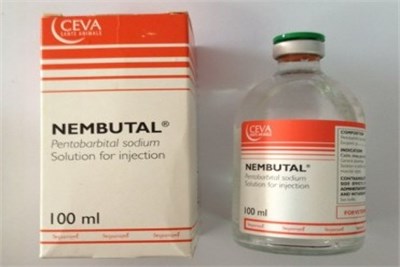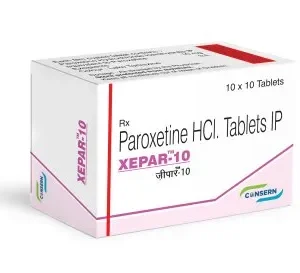Nembutal Phenobarbital Sodium Solution
Buy Nembutal Phenobarbital Sodium Solution Online
Understanding Nembutal Phenobarbital Sodium Solution: Effects, Medical Uses, Dosage, and Side Effects
Nembutal, also known as Phenobarbital Sodium, is a barbiturate medication primarily used for its sedative, hypnotic, and anticonvulsant properties. It has a long history of medical use, dating back to the early 20th century. Despite its efficacy, the use of Nembutal is tightly regulated due to its potential for abuse, dependence, and serious side effects. This comprehensive article delves into the effects, medical uses, dosage guidelines, and side effects of Nembutal Phenobarbital Sodium Solution.
Effects of Nembutal Phenobarbital Sodium Solution
Phenobarbital Sodium, the active ingredient in Nembutal, is a central nervous system depressant. Its effects are primarily due to its action on the gamma-aminobutyric acid (GABA) receptors in the brain, enhancing the inhibitory effects of GABA and leading to a decrease in neuronal activity. The effects of Nembutal Phenobarbital Sodium Solution can be categorized as follows:
1. Sedation and Relaxation:
– Nembutal induces a state of calm and relaxation, which is useful in reducing anxiety and agitation.
2. Hypnosis:
– At higher doses, Nembutal can cause drowsiness and sleep, making it an effective hypnotic agent for treating insomnia.
3. Anticonvulsant:
– Nembutal is effective in controlling seizures by stabilizing neuronal activity and preventing abnormal electrical discharges in the brain.
4. Muscle Relaxation:
– The drug also has muscle relaxant properties, helping to alleviate muscle spasms and tension.
Medical Uses of Nembutal Phenobarbital Sodium Solution
Nembutal Phenobarbital Sodium Solution has several medical applications, although its use has declined with the advent of newer, safer medications. Key medical uses include:
1. Seizure Management:
– Nembutal is used to treat various types of seizures, particularly when other anticonvulsant medications are ineffective. It is commonly used in emergency settings for the acute management of status epilepticus.
2. Sedation:
– Nembutal is employed as a sedative in preoperative settings to calm patients before surgery. It is also used in intensive care units to sedate patients requiring mechanical ventilation.
3. Insomnia Treatment:
– For patients with severe, short-term insomnia, Nembutal can be prescribed to help induce and maintain sleep.
4. Anxiety Relief:
– Nembutal may be used to reduce anxiety and agitation in patients with acute psychiatric disturbances.
5. Euthanasia and Assisted Suicide:
– In some countries and jurisdictions, Nembutal is used in euthanasia and physician-assisted suicide due to its ability to induce a peaceful and painless death.
Dosage Guidelines for Nembutal (Phenobarbital Sodium Solution)
The dosage of Nembutal varies depending on the condition being treated, the patient’s age, weight, and overall health. It is crucial to follow medical advice strictly to avoid complications. Typical dosage guidelines include:
1. Seizure Management:
– For acute seizure control, an initial dose of 15-20 mg/kg is administered intravenously, followed by maintenance doses as required.
2. Sedation:
– For preoperative sedation, a dose of 100-200 mg may be given intravenously or intramuscularly. The exact dosage is tailored to the patient’s needs and response to the medication.
3. Insomnia:
– For short-term treatment of insomnia, an oral dose of 100-200 mg at bedtime may be prescribed. Due to the risk of dependence, it is generally recommended for short-term use only.
4. Anxiety Relief:
– For anxiety, a dose of 30-120 mg per day, divided into several doses, may be prescribed depending on the severity of symptoms.
5. Euthanasia and Assisted Suicide:
– In jurisdictions where it is legally permitted, the dose for euthanasia is typically much higher, usually administered intravenously to ensure a rapid and painless death.
Side Effects of Nembutal Phenobarbital Sodium Solution
Nembutal, like all barbiturates, carries a risk of side effects, ranging from mild to severe. Common side effects include:
1. Drowsiness and Fatigue:
– These are the most common side effects, often leading to impaired alertness and concentration.
2. Dizziness and Lightheadedness:
– Patients may experience dizziness, especially when standing up quickly.
3. Nausea and Vomiting:
– Gastrointestinal disturbances, such as nausea and vomiting, can occur, particularly with higher doses.
4. Headache:
– Some patients may experience headaches as a side effect of Nembutal.
5. Allergic Reactions:
– In rare cases, patients may develop allergic reactions, presenting as skin rashes, itching, and difficulty breathing.
6. Respiratory Depression:
– One of the most severe side effects of Nembutal is respiratory depression, which can be life-threatening, especially at high doses.
7. Dependence and Withdrawal:
– Long-term use of Nembutal can lead to physical and psychological dependence. Abrupt discontinuation can cause withdrawal symptoms such as anxiety, tremors, seizures, and delirium.
8. Overdose:
– Overdose of Nembutal is a medical emergency and can result in severe respiratory depression, coma, and death. Symptoms of overdose include confusion, deep sedation, significantly slowed breathing, and loss of consciousness.
Precautions and Contraindications
Due to its potency and potential for abuse, Nembutal should be used with caution and only under strict medical supervision. Key precautions and contraindications include:
1. Pregnancy and Breastfeeding:
– Nembutal can cross the placenta and is excreted in breast milk. It should be avoided during pregnancy and breastfeeding unless absolutely necessary.
2. Liver and Kidney Disease:
– Patients with liver or kidney impairment should use Nembutal cautiously, as these conditions can affect the drug’s metabolism and excretion.
3. History of Substance Abuse:
– Patients with a history of substance abuse or dependence should be closely monitored, as they are at higher risk of developing dependence on Nembutal.
4. Respiratory Disorders:
– Nembutal can exacerbate respiratory conditions such as asthma, chronic obstructive pulmonary disease (COPD), and sleep apnea.
5. Interactions with Other Medications:
– Nembutal can interact with various other medications, including other CNS depressants, anticoagulants, and certain antibiotics. It is important to inform the healthcare provider of all medications being taken.
Conclusion
Nembutal (Phenobarbital Sodium Solution) is a potent barbiturate with significant medical uses, particularly in managing seizures, providing sedation, and treating severe insomnia and anxiety. Despite its effectiveness, the use of Nembutal is limited due to its high potential for abuse, dependence, and serious side effects. Strict adherence to medical guidelines and close monitoring are essential when using this medication. Patients and healthcare providers must work together to ensure safe and effective use, minimizing risks while maximizing therapeutic benefits.





Reviews
There are no reviews yet.